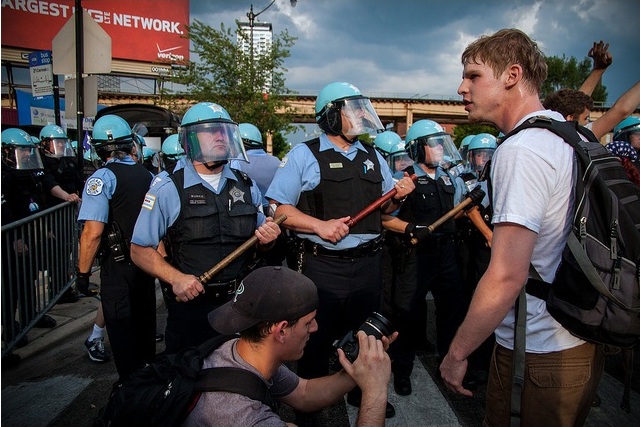Illinois Eavesdropping Law Finally Fizzles
By aaroncynic in News on Mar 21, 2014 8:40PM
After years of legal challenges and court battles, Illinois' eavesdropping law is finally dead. The Chicago Tribune reported Thursday the Illinois Supreme Court ruled the statute, which made audio recording of any person, even in public, illegal was struck down as unconstitutional. The ruling comes after multiple challenges in several courts. A federal appeals court ruled two years ago just prior to the NATO summit, enforcement of the law would be unconstitutional, given the sheer amount of cell phone cameras and other recording devices protesters would have in their hands during the protests.
The Court struck down the law in a case involving Annabel Melongo, a 41-year-old native of Camaroon who came to the United States by way of Germany after she finished school. Melongo was charged with violating the law, one of the strictest in the country, after she made public three conversations she recorded with a court reporter supervisor. In 2008, Melongo published the recordings to a website she created to speak out about a computer-tampering case Cook County prosecutors had brought against her. Melongo told the Tribune that after she was charged with six counts of eavesdropping, she was held on a six-figure bond, which is normally reserved for repeat violent offenders.
“They say what doesn’t kill you makes you strong and believe me, when I got out of jail, there’s nothing in the world that can actually kill me now,” she said. Melongo spent nearly two years behind bars at Cook County Jail. Gabriel Plotkin, her attorney, told the Tribune “I think it’s outrageous that she spent any time in jail. I think it’s made more egregious by the fact that the Supreme Court has now said the law was unconstitutional.” Plotkin also pointed out how the law has been often used to prevent people from recording government officials and law enforcement and holding them accountable for their actions. Melongo’s lawyers said in a press release from the ACLU:
“The Supreme Court also held that the statute infringed on the free speech rights of citizens by making it a crime to audio record conversations with public officials, who have no privacy interest in the statements they make while interacting with the public, including recording police officers making public arrests. In fact, as it turns out, the only prosecutions ever brought under the statute charged citizens with felonies for recording and reporting on conversations with police officers or public officials performing their official duties, in violation of their First Amendment rights.”
